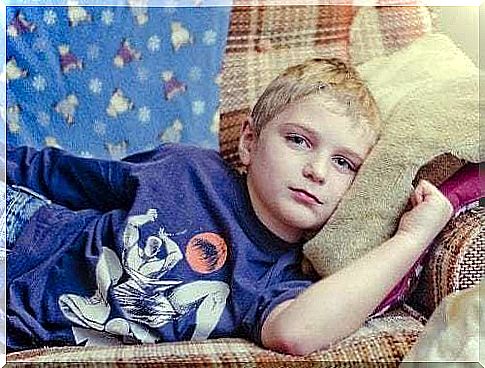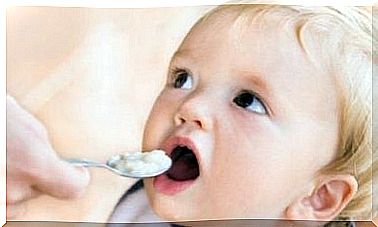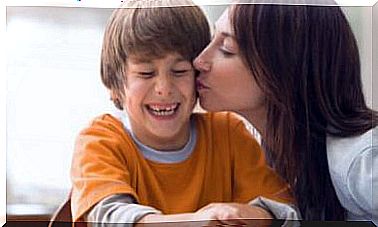Appendicitis In Children: Causes And Symptoms

Appendicitis is a syndrome that most affects children between the ages of 0 and 4. In this article, we will talk about appendicitis in children, including its causes and symptoms.
What is appendicitis?
Appendicitis consists of the infection of a small organ called the appendix, a thin tube of about nine centimeters, which comes from the large intestine. So far, medical science hasn’t determined exactly what functions it performs: apparently, it acts as a defense against intestinal infections.
This is a clinical picture that mum and dad need to know in detail, because it can also affect newborns. But what causes appendix inflammation? Here is the answer: Obstruction of this canal involves a large accumulation of fecal content (faeces), which damages the walls of the organ and causes infection.
When the appendix becomes inflamed, the first symptoms are swelling and pain which tend to focus on the lower right part of the abdomen, called the McBurney area. In fact, doctors use this part as a reference to get the first tests done and give a diagnosis.
When he has appendicitis, the baby may feel a slight improvement after severe discomfort. This is not good news because it could be the onset of peritonitis. Peritonitis is the inflammation of a membrane called the peritoneum that surrounds most of the abdominal organs and produces a perforation in the appendix.

Symptoms of appendicitis in children
Typically, doctors never give a diagnosis of appendicitis until a series of tests are done. This is because the appendicitis can be confused with other minor intestinal conditions (with gastroenteritis, for example), but also with the common cold, etc.
We present the main symptoms of appendicitis in children, so that you can be careful of your child:
- Appendicitis begins with mild pain in the upper abdomen or around the navel. This is accompanied by fever, loss of appetite, diarrhea, constipation, nausea, vomiting, chills, and weakness.
- After a few hours, the pain begins to intensify and manifests itself with constant discomfort in the lower part of the abdomen.
- Children feel exhausted, they don’t want to play or eat, they lose interest in things around them and even if they remain in a good mood, they may appear tired.
If you observe these signs, do not hesitate to contact your pediatrician and follow his instructions. Of course, the pain is unbearable, go to the nearest hospital.
Risk factors
Acute appendicitis is the leading cause of abdominal surgery in children over the age of two. Although it can occur at any age, newborns account for barely 5% of cases, and the highest incidence is found in children between the ages of 10 and 12.
In this context, it is worth asking: What are the causes of appendicitis in children? The main risk factors are:
- Genetic factors: The risk increases if dad or mom have already suffered from appendicitis. In these cases, it appears before the age of 6.
- Infections: gastroenteritis, viral infections, etc.
- Poor nutrition: the low consumption of fiber in the diet of children is dangerous for their body.
- Circumstantial factors: suffering a trauma to the abdomen.

How to cure appendicitis in children
Unfortunately, when there is a clear diagnosis, the solution is to remove the appendix (appendectomy), using a surgical procedure. The good news is that science has made a lot of progress and that it is a fairly simple operation. In addition, children always heal faster than adults.
The appendix is likely to appear normal during surgery, but the doctor will still choose to remove it and continue to look for the causes of the pain. In any case, the important thing is to believe that your child is strong and that he will best overcome this situation.
Most children recover from appendicitis quickly. So don’t worry: pay attention to your child’s health and always keep the number of your doctor at hand for any emergency.









